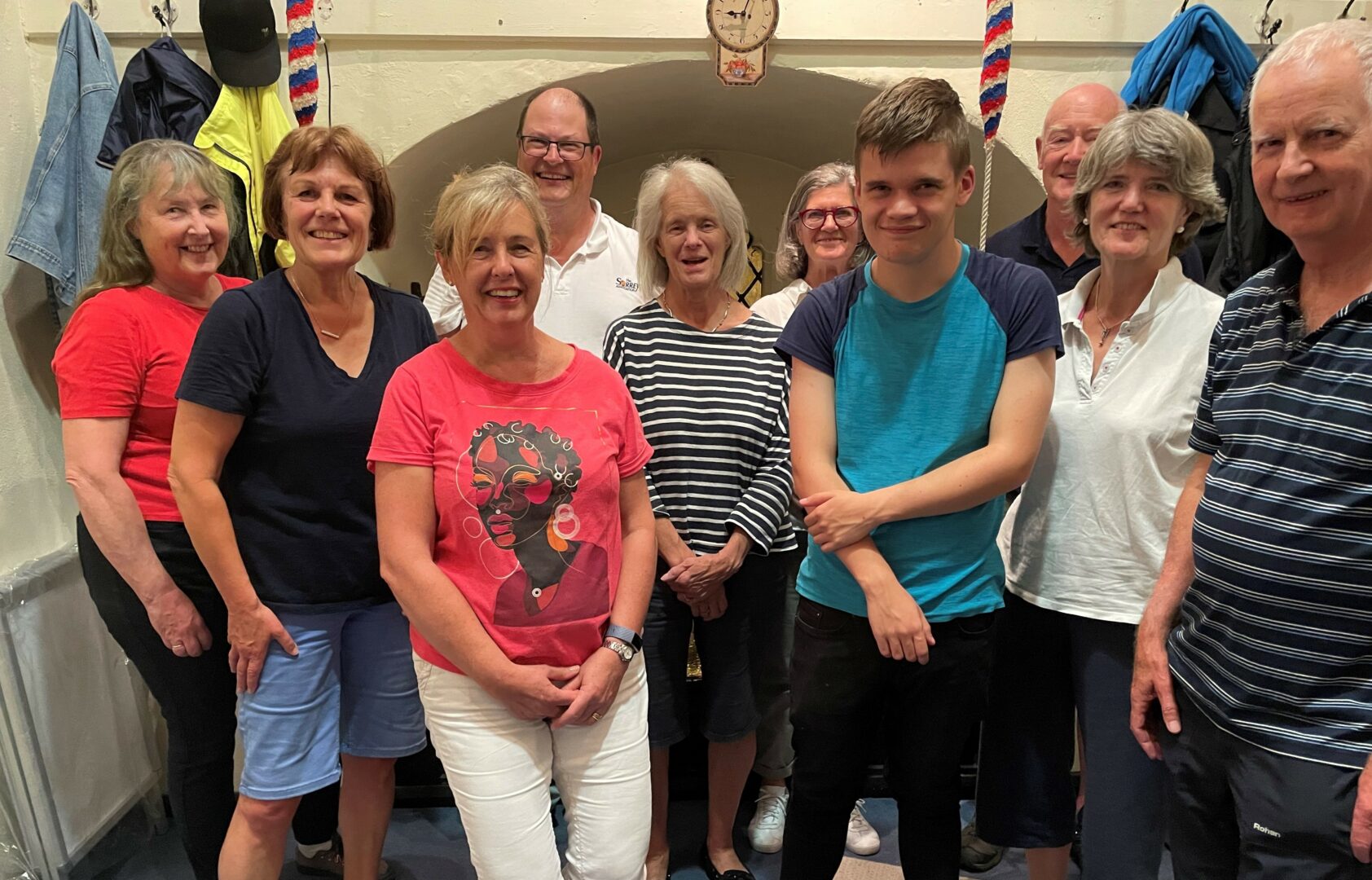
Bell Ringing
Ringing at St Mary Magdalene
The Richmond bell ringers are an active group who are dedicated to maintaining regular ringing in the parish. We ring most Sundays before the morning service and practice on Tuesday evenings. We also ring for weddings and other special occasions and attempt a quarter peal on the first Saturday afternoon of most months.
We are part of a collaboration between ringers from several local towers which means that we help the ringing in Twickenham, Barnes, Chiswick for example and we welcome support from other ringers in the area– read more about recent events on our news page.
Visiting ringers, both locally or from around the UK and abroad are always welcome to join our practice night or service ringing.
Regular Ringing
Sunday mornings 9.00-9.30am
Practice nights Tuesday 7.00-9:00pm
If you are a visiting ringer, please check in advance as there are occasions, such as the holiday period, when ringing does not take place.
We are also pleased to hear from anyone who is interested in learning to ring. Please get in touch.
Contacts
Jackie Harrison, tower captain, 07747 111525
The Bells of St Mary’s
The tower contains a ring of 8 bells bearing dates between 1680 and 1761. The tenor weighs nearly 19 cwt and they were re-hung in a clockwise ring by Eayre and Smith around 1980.
The No 4 is probably the oldest; although dated 1680, it carries two inscriptions, which read
Lambert made me weake, not fit to ring
But Bartlet amongst the rest has made me sing
And
Samuel Moody, Moses Boddicot, Churchwardens 1680
As No 6 and 7 are signed by John Bartlet and dated 1680, it seems likely that Lambert made the original, “weake” No 4 earlier than that. Bartlet also made the clock bell.
In 1740 bells No 1, 2 and 3 were hung. No 1 and 2 were the gift of a William Gardiner, who was churchwarden in 1735-6; they bear the inscription
Ex Dono Gulielmi Gardiner Generosi Anno 1740
The No 3 was probably provided out of church funds as it has the names of contemporary churchwardens, Charles Scot and Stephen Andrews inscribed upon it. These three bells also bear the maker’s initials, “R. C. fecit”, who, it is thought, was R. Catling, as the No 5 bell, which was recast in 1742, also bears this name. The last bell, the No 8 or Tenor, was made by Lester and Pack of London, and was hung in 1761. It also has the names of churchwardens of that year inscribed on it
Percival Hart and Thomas Allen
In 1787 all the bells were overhauled and repaired by Edward Simmons, bell hangers of Whitechapel at a cost of £35.10s. In 1847 the Vestry agreed to allow the ringers 8 guineas a year for ringing on each of the following days: Easter Day, Queen Victoria’s birthday, Ascension Day, Prince Albert’s birthday, the Prince of Wales’ birthday, Christmas day and New Year’s Eve.
History
The earliest reference to the bells is contained in the inventories of church goods made in the reign of Edward VI (1547-1553), when three bells and a Sanctus bell are mentioned. According to the certificate issued in 1553 these bells were to be sold and the money appropriated to the King’s use. No further mention of these bells is made until 1624, when the Vestry minutes record that “Sir George Wright had in his hands money paid to him by Mr Beck towards a bell, and also that a George Charley had a bell for which the Vestry agreed to pay £4.13s.10d for the church use. There is no record, however, that the bells were hung.
In 1630 the Vestry instructed the churchwardens “to take a Vieue for the handing up of five bells”. Whereof Sir Robert Douglas did promise that he would get the King, Charles I, to give one bell and the Vestry promised to contribute towards the others.
Regulations for ringing the bells for weekday services were made by the Vestry in March 1717. This is an extract from the minutes that caused these regulations to be made:
Complaint being made to the Vestry that the great uncertainty of times of ringing the bells for prayers on the week days is very inconvenient to the inhabitants of this parish, by hindering some of them from attending the public prayers in the church and frequently obliging others to wait in the cold and rain for a long time.
It is therefore ordered that from henceforth the parish clerk or sexton shall begin to ring the bells on the week days about a quarter of an hour before the 11 of the clock in the forenoon and that so soon as the clock hath struck 11 the little bell shall begin to be rung and shall continue to for a full quarter of an hour and not more, and then to cease that the prayers in church may be begun at a regular and decent time.
And so that all parishioners may be acquainted with the contents of this order, the Clerk will thereof affix a copy of the said on the church door.